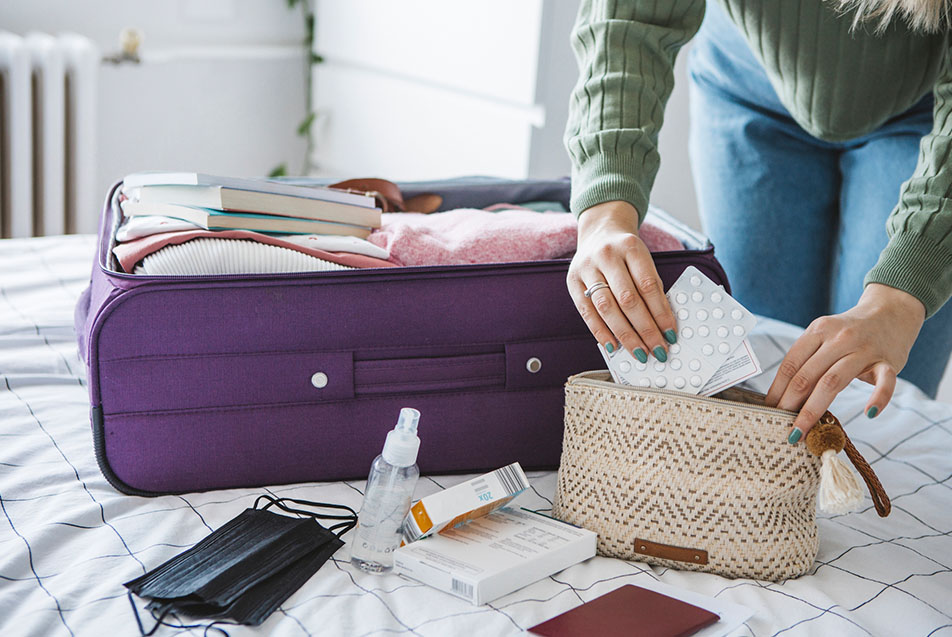
This post was written by Sophia Rose Postma, Pharm D candidate, reviewed by Tim Johnston, PharmD, Parkview Health.
As travel picks up again in popularity, it’s important to know what medications to pack for a trip. Being prepared while traveling inside or outside of the country is key for a stress-free and successful getaway, without any unwanted health concerns.
Prescriptions
Travelers should bring all prescription medications they are taking. When flying, medications should be packed in a carry-on suitcase, in case a checked bag gets lost. If you are travelling to a different time zone, a doctor or pharmacist should be consulted about any schedule adjustments you might need to make. Pack enough medication to last the entire duration of the trip and consider bringing extra to be safe. Prescription medications should be kept in the original, clearly labeled container and be stored properly to ensure their potency and efficacy.
We also recommend carrying an up-to-date medication card with you that lists all of the medications and dosages you are currently taking in the event you need medical treatment while away from home.
Vaccinations
If you are traveling to a foreign country with uncommon diseases, vaccinations or medications may be required to enter. The country’s requirements should be provided by the foreign embassy and more information is available on the Centers for Disease Control and Prevention (CDC) website.
Vaccines may need to be given at least four to six weeks before traveling, so be sure to consult reliable sources and get these taken care of. There are many travel medicine specialists as well as clinics. These services are helpful for getting vaccines and prescriptions before travelling.
Over-the-counter medications
There are many available over-the-counter (OTC) medications that might be useful while travelling. It is a good idea to be prepared to address common medical concerns, such as headache/pain, traveler’s diarrhea or constipation. For this reason, we recommend packing:
For pain relief – Acetaminophen, aspirin, ibuprofen, and naproxen are pain relievers and fever reducers. Aspirin should not be given to people younger than 18 years old.
For traveler’s diarrhea – Loperamide is an antidiarrheal that will treat short- and long-term diarrhea. This medication does not work immediately, it takes about five hours to begin to work.
For constipation – Polyethylene glycol, bisacodyl, and docusate are all laxatives to help relieve constipation.
For heartburn – Calcium carbonate, omeprazole, and famotidine all work by reducing stomach acid to treat or prevent heartburn.
For dehydration – There are many forms of oral rehydration therapy available. This helps prevent dehydration and restore fluids as well as electrolytes. These electrolyte therapies come in liquids, powders and dissolvable tablets.
For first aid – Neomycin-bacitracin-polymyxin B is an antibacterial ointment used to prevent and treat skin infections due to cuts or scrapes.
For allergies – Loratadine, cetirizine, fexofenadine, and diphenhydramine are used to help treat allergy symptoms. Diphenhydramine can also help travelers fall asleep. Diphenhydramine is also used to prevent motion sickness.
Don’t let unpleasant symptoms or missed medication ruin your vacation. Plan ahead and pack for prevention.



